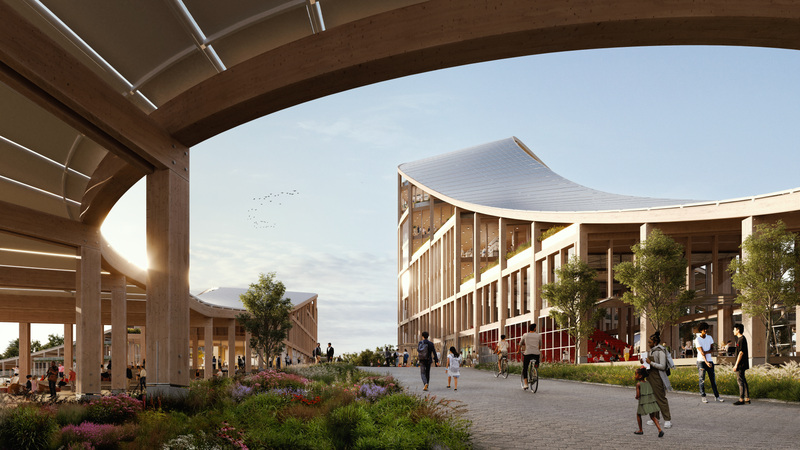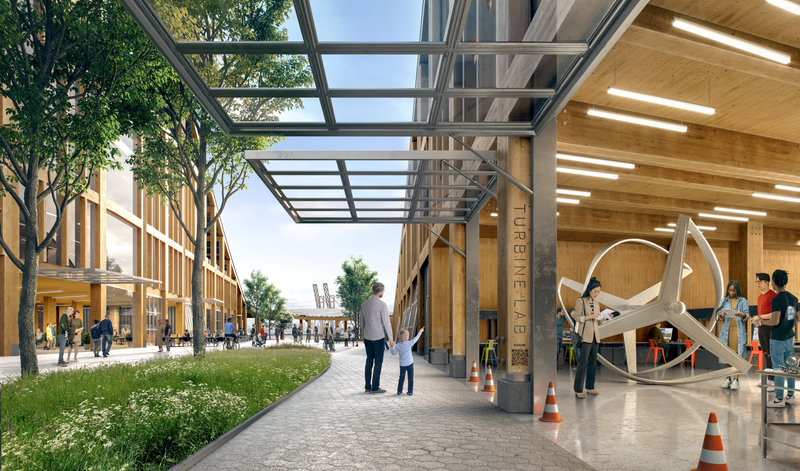NEW YORK (1010 WINS/WCBS 880) -- Governors Island will house a 400,000-square-foot campus dedicated to combating climate change, Mayor Eric Adams announced Monday.
The New York Climate Exchange, as it'll be called, will cost $700 million and likely open in 2028, with a 2025 start to construction.
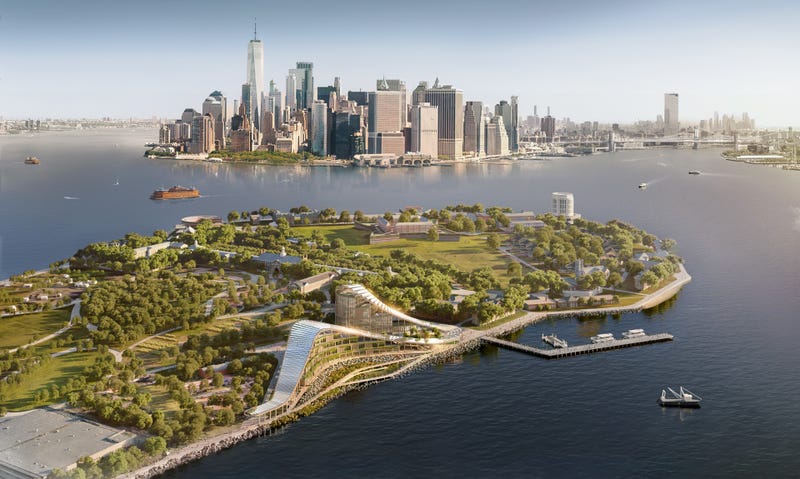
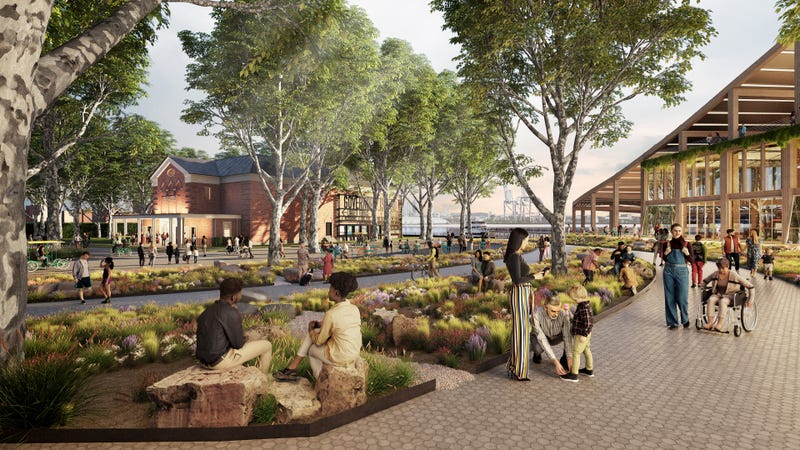
The hub will be dedicated to research, education and public programs "addressing the global climate crisis," according to the mayor's office.
The campus will include classrooms, laboratories, research labs, public exhibition space, student and faculty housing, university hotel rooms and an auditorium space. Some areas will be newly constructed, while others will be in restored historic buildings, including Liggett Hall and the Fort Jay Theater.
"We know as New Yorkers, we never back down," Adams said at a news conference from the island on Monday. "We never run away from a challenge. We're very clear and focused. We think big and we push on. Fighting climate change is a real battle, and it's a battle we're not only going to lead the nation, but we are going to win."
New York officials have been trying to figure out what to do with Governors Island since the federal government handed over control in 2003 under the condition that no commercial housing be built there.
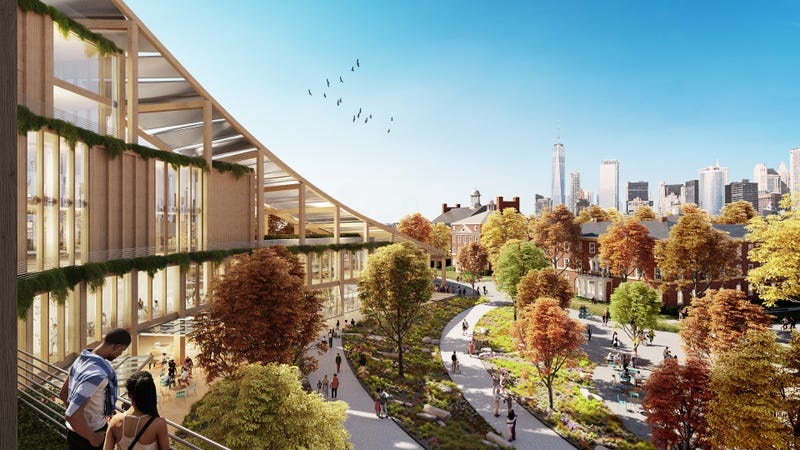
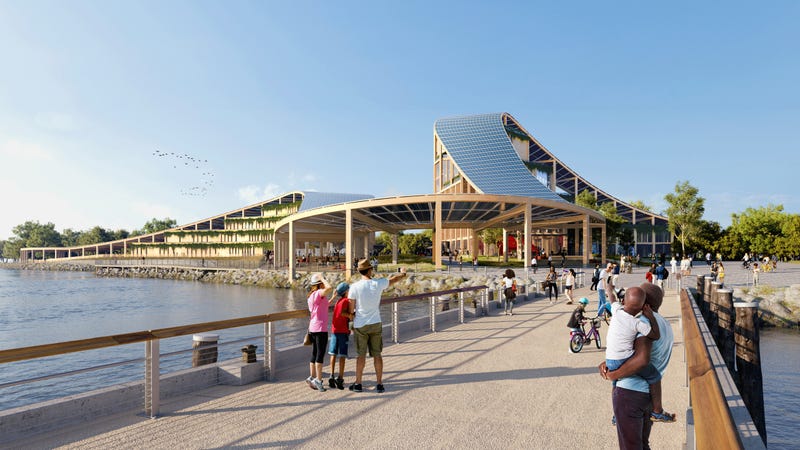
The island currently features parks operated by the National Park Service and the nonprofit Trust for Governors Island, offering sweeping views of New York Harbor, Lower Manhattan and Brooklyn.
After a two-year process, the city chose a cross-sector consortium led by Stony Brook University, a flagship of the SUNY system. It includes New York's Pace University and Pratt Institute, as well as the Georgia Institute of Technology, the University of Washington, Boston Consulting Group, Good Old Lower East Side and IBM.
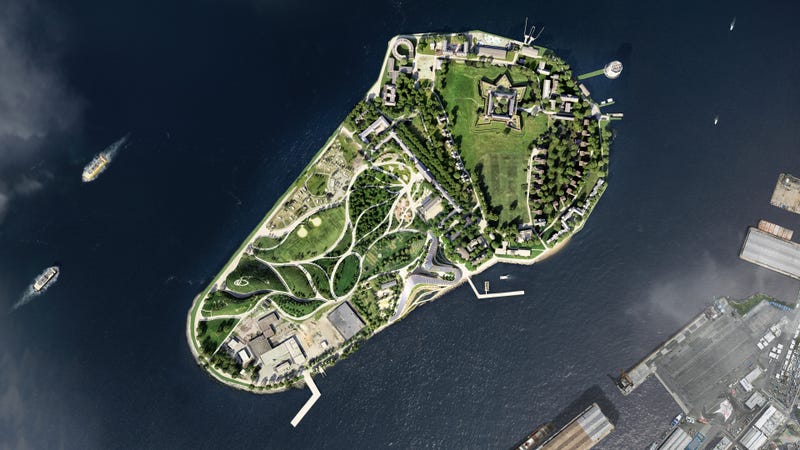
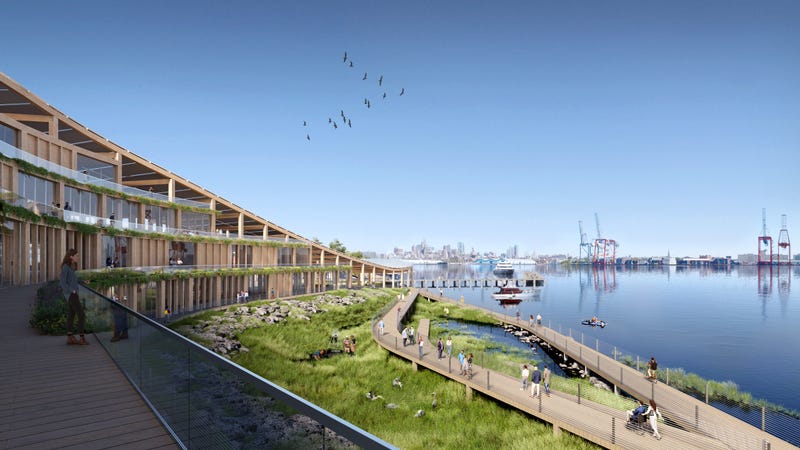
According to a release from the mayor's office, the campus will generate 100% of its electricity and serve as "a living laboratory, showcasing innovative approaches to sustainable and resilient design."
City Hall said the campus will have a $1 billion economic impact and create 7,000 permanent jobs. It will be built using union labor.
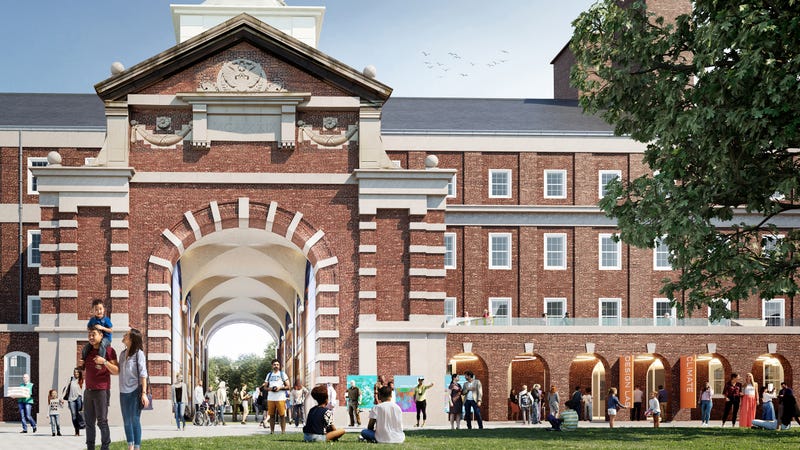
Once operational, the campus is expected to serve 600 postsecondary students, 4,500 K-12 students, 6,000 workforce trainees and 250 faculty and researchers each year.
The project will include ferry service to the island every 15 minutes, with a new, hybrid ferry set to begin transporting passengers in summer 2024.
It will also add 4.5 acres of new open space to the 172-acre island's existing 120 acres of open space.
